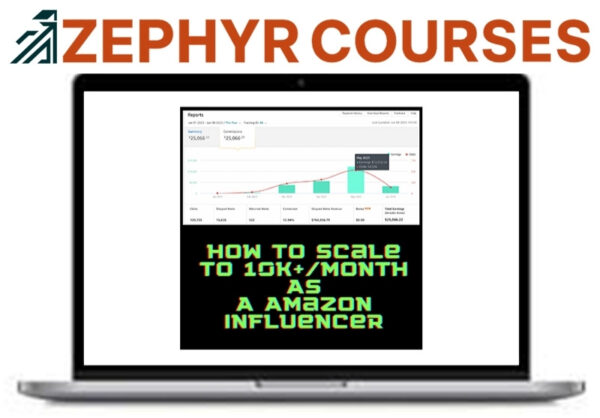Description
Building Audience Trust and Authority
Although flashy product placements can grab attention, genuine influence starts with trust. If your audience senses authenticity, they’ll stick around—and buy. You need to consistently share engaging content that feels honest and relatable.
Don’t just showcase products; explain why you use them, what you love, and when they fall short. This transparency makes your recommendations credible.
Community interaction is essential. Respond to comments, answer questions, and invite feedback. When people see you care about their opinions, they’re more likely to value yours.
Go beyond simply posting—host live sessions, polls, or Q&As to foster real conversations. Over time, your credibility grows.
When you build trust and authority, your audience will look to you for advice, making every product mention far more impactful.
Selecting High-Converting Products and Niches
To maximize your earnings as an Amazon Influencer, you need to focus on products and niches that consistently convert viewers into buyers. Start by conducting thorough product research—look for items with high ratings, positive reviews, and clear demand.
Avoid saturated markets, but don’t pick niches so obscure that there’s no audience. Smart niche selection targets categories that align with your content and audience interests, making recommendations feel natural and trustworthy.
Track trends and seasonal shifts to identify new opportunities before they peak. Analyze competitor content to spot gaps you can fill.
When selecting products, prioritize those with competitive pricing and attractive commission rates. Experiment with a mix of evergreen and trending items to diversify your portfolio and keep your content fresh, relevant, and profitable.
Maximizing Amazon’s Tools and Analytics
Once you’ve picked high-converting products and niches, your next step is making the most of Amazon’s built-in resources to track and boost your performance. Immerse yourself in the analytics insights provided by your Amazon Influencer dashboard—these numbers aren’t just stats, they’re your roadmap to higher earnings.
Focus on metrics like clicks, conversion rates, and earnings per click to see which content and products resonate with your audience.
Use tool optimization to your advantage. Experiment with A/B testing product placements, thumbnails, and video descriptions, then monitor which changes drive the best results.
Don’t ignore the “Insights” tab; it reveals trends and buying behaviors you can capitalize on. By consistently analyzing data and refining your approach, you’ll create a feedback loop that maximizes revenue and scales your influence.
Frequently Asked Questions
How Do I Negotiate Higher Commissions With Brands as an Amazon Influencer?
When negotiating higher commissions, highlight your audience engagement and past results. Use clear negotiation tactics—ask about flexible commission structure options. Show brands the value you bring, and don’t hesitate to counter with data supporting your worth.
What Legal Considerations Should I Be Aware of When Promoting Amazon Products?
When you promote Amazon products, you must follow FTC guidelines by disclosing affiliate relationships. Make sure you understand product liability as well—you could share responsibility if you misrepresent features or make false claims about what you’re endorsing.
How Much Initial Investment Is Required to Start as an Amazon Influencer?
When starting as an Amazon influencer, you’ll want to contemplate initial costs like equipment, content creation tools, and marketing. Budget planning is key—you can start with a few hundred dollars, but investing more can speed up growth.
Can I Use Amazon Influencer Links on Other Social Media Platforms or Blogs?
Yes, you can share your Amazon influencer links across various social media platforms and blogs. Platform compatibility is broad, so maximize link sharing on Instagram, YouTube, TikTok, Facebook, and personal websites to boost your reach.
How Do I Handle Negative Feedback or Reviews on My Amazon Storefront?
When you receive negative feedback or reviews on your Amazon storefront, use negative review strategies by responding professionally. Address concerns, thank customers for their input, and offer solutions. This approach shows you care and builds trust with potential buyers.








